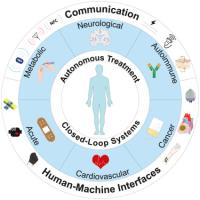3 min read
Research faculty at the Georgia Institute of Technology now have their own advocacy group.
1 min read
Biomedical engineer Gabe Kwong will map cancer cell biomarkers, then engineer new sensors to hunt for multiple kinds of cancer.
3 min read
Closed-loop drug delivery systems can be used to manage chronic medical conditions, such as diabetes, where maintaining precise control over mediation dosage is critical
2 min read
The Love Family Professor holds joint appointments in the School of Chemical and Biomolecular Engineering and School of Earth and Atmospheric Sciences at Georgia Tech.
4 min read
Cybersecurity master’s student Sneha Talwalkar and GTRI Principal Research Scientist Courtney Crooks are working to build the framework of an AI tool with the goal of providing support and protection to domestic abuse survivors.
2 min read
Krista Walton Chosen as Associate Vice President for Research Operations and Infrastructure
6 min read
Georgia Tech researchers have uncovered eco-friendly bacterial proteins that stabilize methane clathrates, offering a green solution to climate challenges and potential implications for astrobiology.
6 min read
GTRI launches its pilot Defense-University Affiliated Research Traineeship (DART) Program to leverage the pipeline of researchers underrepresented in STEM and accelerate their access and opportunities in research and development for the DoD.
2 min read
Master agreement to focus on innovation in transport infrastructure to develop a more sustainable future for mobility.
4 min read
A multi-institutional team, including Georgia Tech researchers, has received $45 million from ARPA-H to develop a surgically implantable device that may potentially reduce U.S. cancer-related deaths by 50%.













